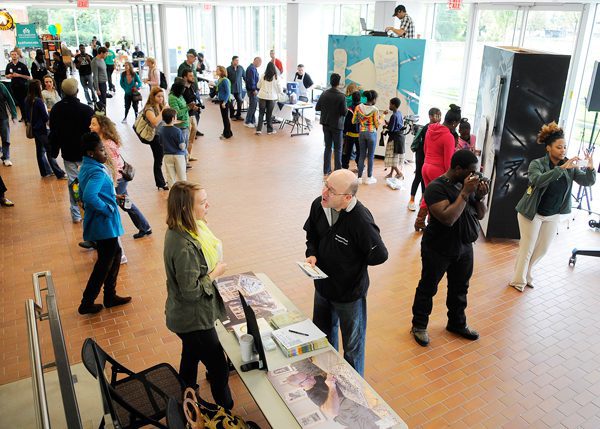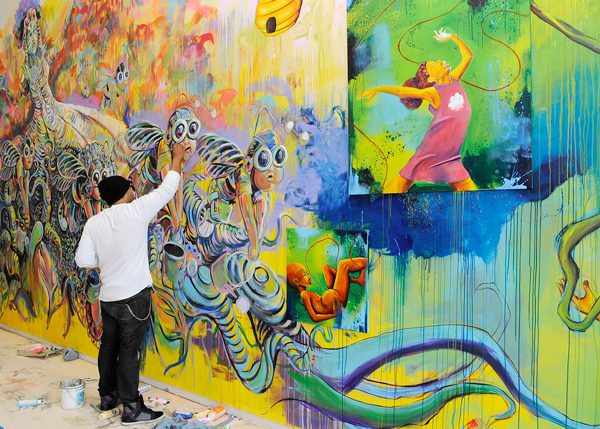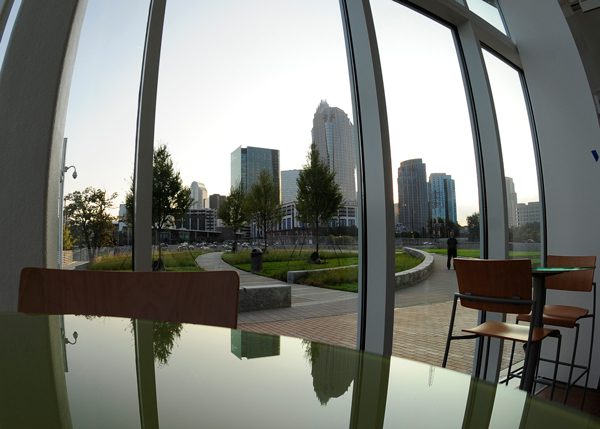Institute connects with center city
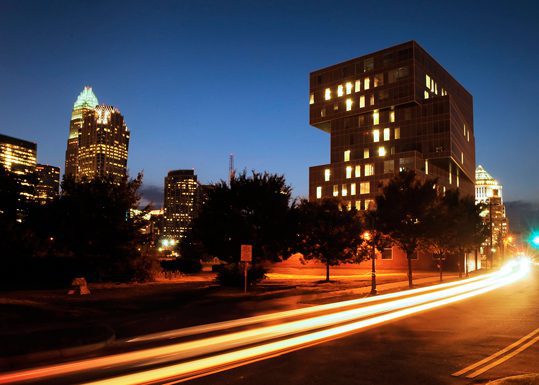
The UNC Charlotte Urban Institute now has office space in the university’s Center City Building. Although the institute will continue to be headquartered on the main campus, several staff members and institute Director Jeff Michael are now regularly spending some time each week in the uptown facility. The Center City Building offers the institute new ways to engage with the community and to connect faculty and students to the institute’s community research.
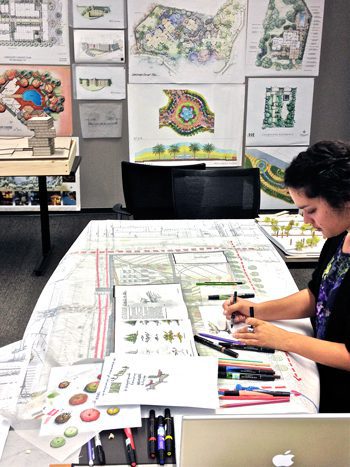 According to Michael, “The new Center City Building is symbolic of UNC Charlotte’s commitment to service and outreach in this community. As UNC Charlotte’s oldest outreach center, it’s only fitting that the UNC Charlotte Urban Institute will have a presence there. Our work in the community takes our staff to uptown Charlotte on a regular basis for meetings with government agencies, nonprofit organizations and community leaders, so the office we’ll maintain at the Center City Building – and our plans to use the outstanding meeting facilities available there – will further enhance our civic engagement work.”
According to Michael, “The new Center City Building is symbolic of UNC Charlotte’s commitment to service and outreach in this community. As UNC Charlotte’s oldest outreach center, it’s only fitting that the UNC Charlotte Urban Institute will have a presence there. Our work in the community takes our staff to uptown Charlotte on a regular basis for meetings with government agencies, nonprofit organizations and community leaders, so the office we’ll maintain at the Center City Building – and our plans to use the outstanding meeting facilities available there – will further enhance our civic engagement work.”
Also in the uptown building are the university’s Belk College of Business MBA program and the Master of Urban Design graduate program, part of the College of Arts + Architecture. Extended Academic Programs is also located uptown so that continuing education opportunities for professionals are close to the large pool of students nearby. With 25 classrooms and a 300-seat auditorium, the facility offers modern, high-tech facilities for regularly scheduled classes and special events or speakers.
Officially open since August, the Center City Building – or CCB, as it is coming to be known – has already brought a new type of activity to uptown. In November, the “Chancellor’s Speaker Series” hosted former U.S. Sen. Alan Simpson and former White House chief of staff Erskine Bowles of Charlotte, co-chairs of the U.S. Deficit Commission, to discuss their work on the commission and their concerns about the deficit.
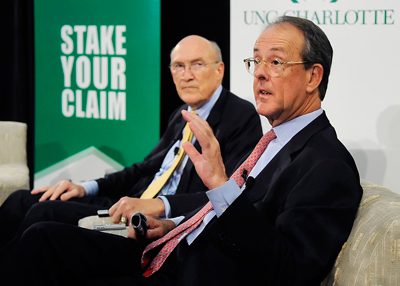 The UNC Charlotte Urban Institute has already hosted some meetings in the building and plans to use the facilities for more events and meetings connected to its work.
The UNC Charlotte Urban Institute has already hosted some meetings in the building and plans to use the facilities for more events and meetings connected to its work.
The institute believes it’s important to bring the university into a closer relationship with the larger Charlotte community, and it will use the new facility to connect better with the heart of the city.
For more information on events at the Center City Building: http://centercity.charlotte.edu/
Scroll below to see more of the Center City Building (photos by Wade Bruton).
